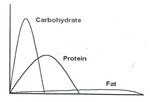Laura0280x
New member
So I just made a huge batch of homemade mac and cheese Full fat butter milk flour huge amounts of cheese etc for my partner and the kids. It got me thinking I'd like to make a lighter healthier version, that is hopefully just as tasty and the whole family can enjoy. If anyone has some ideas/ recipes please share it.

